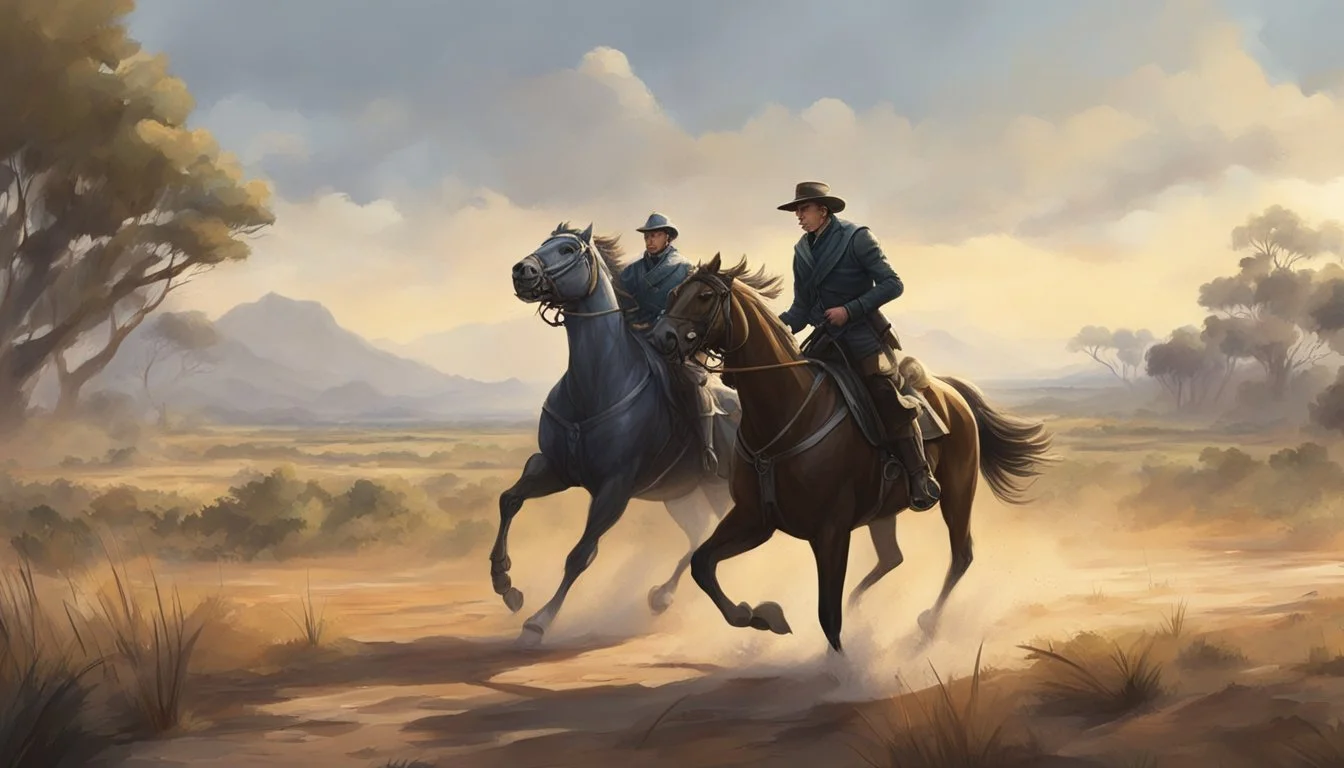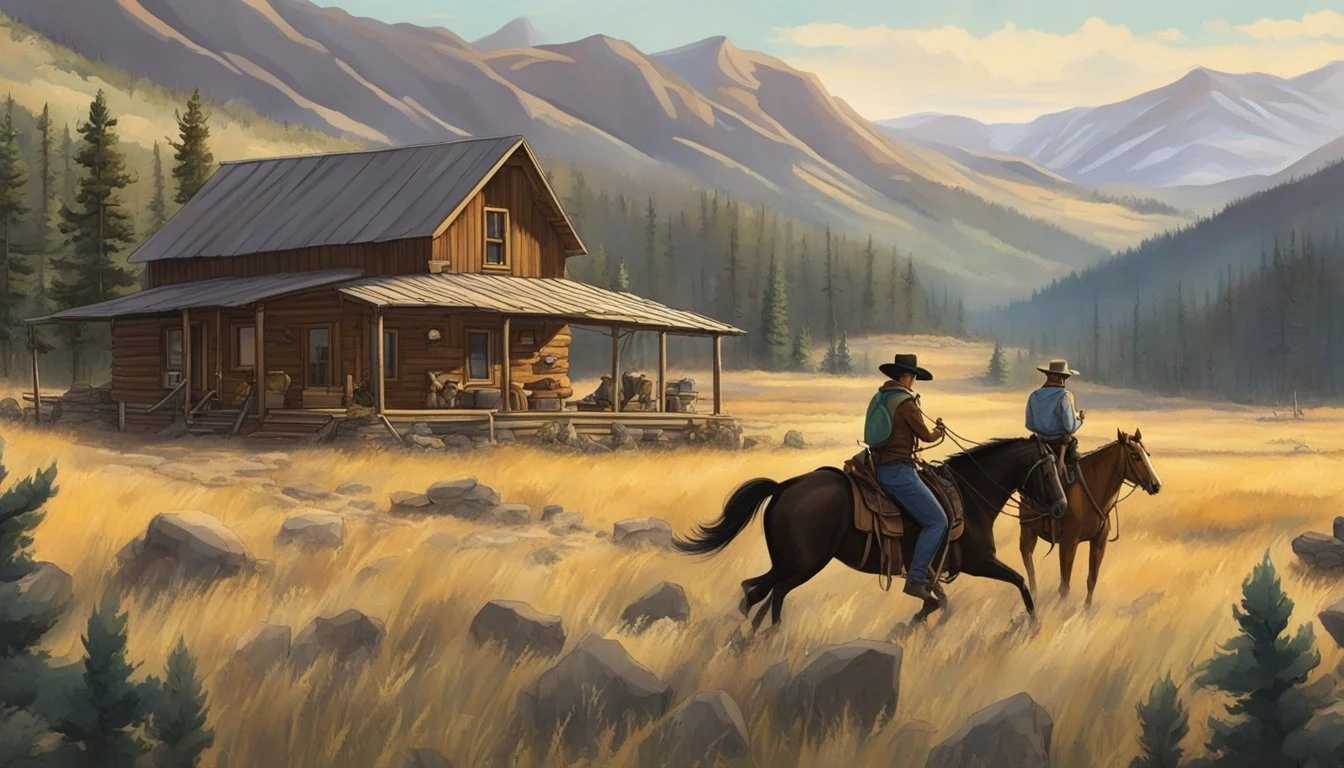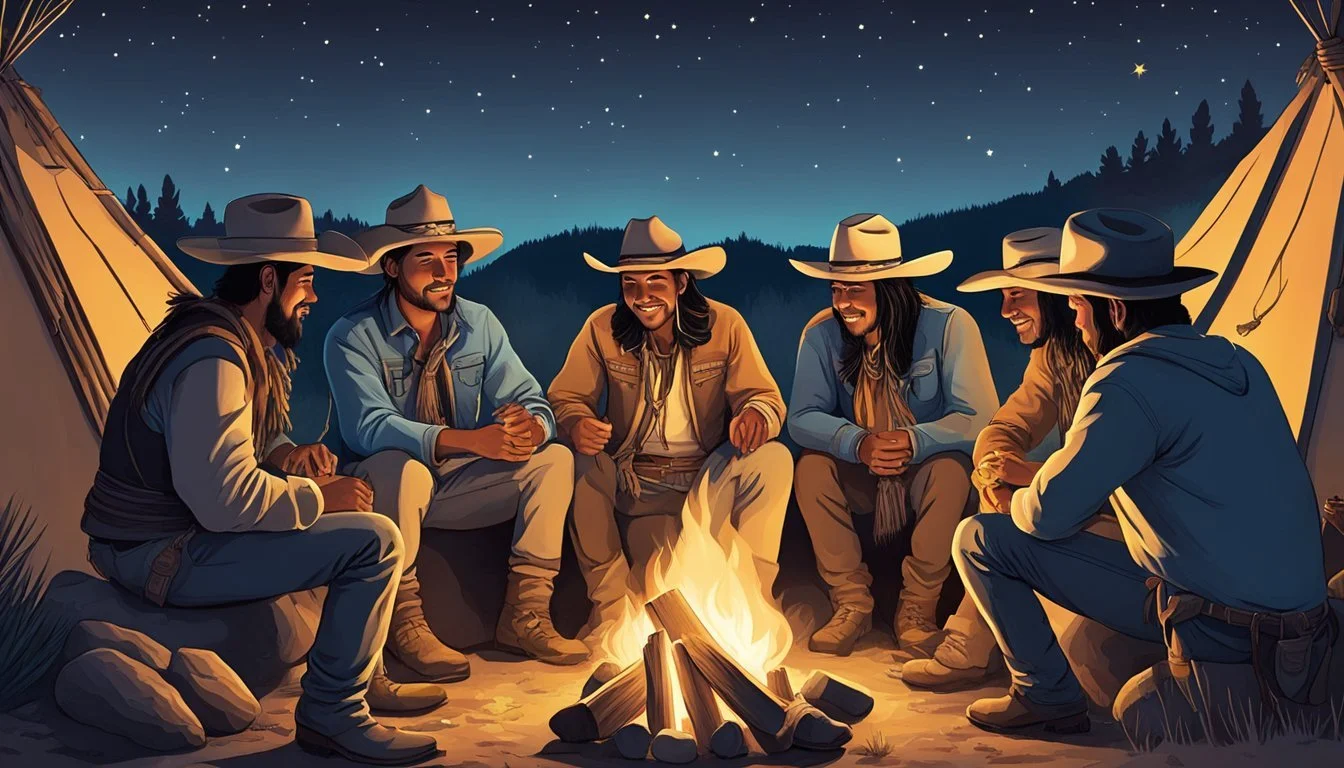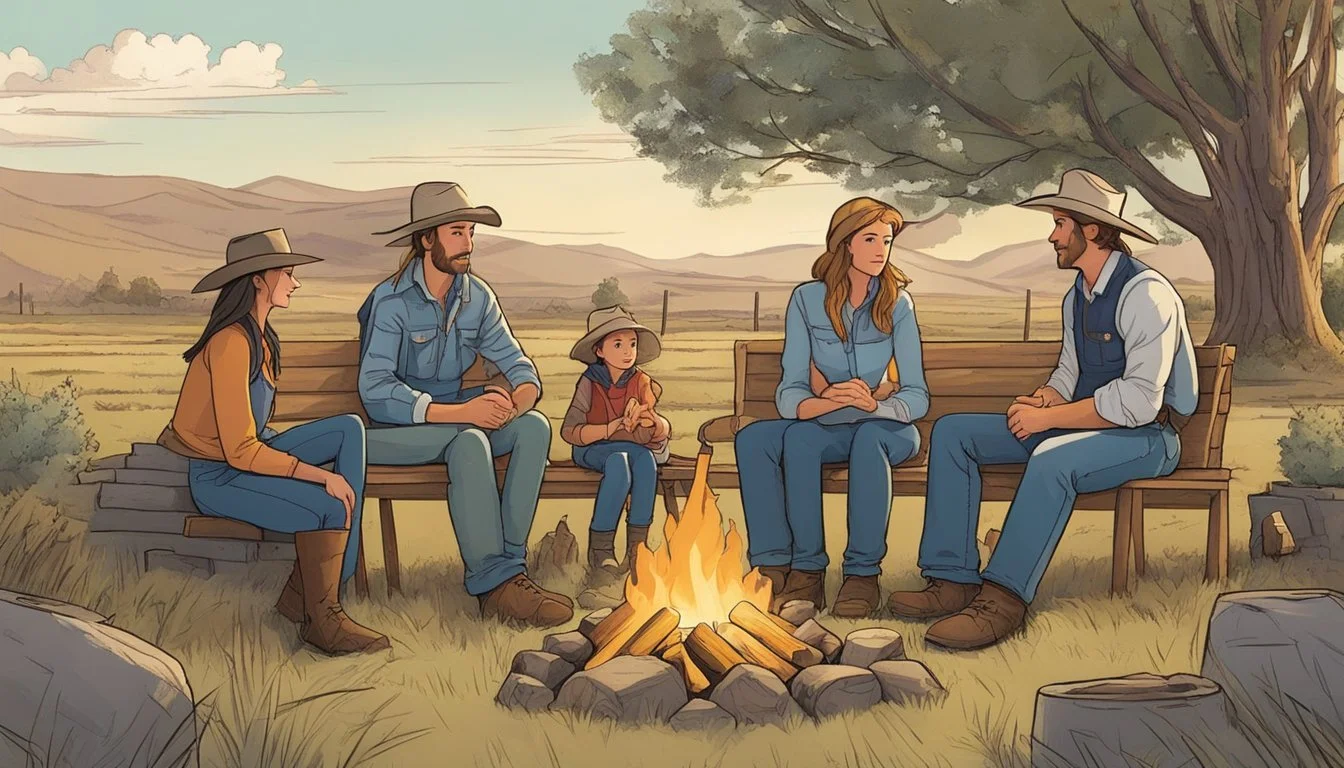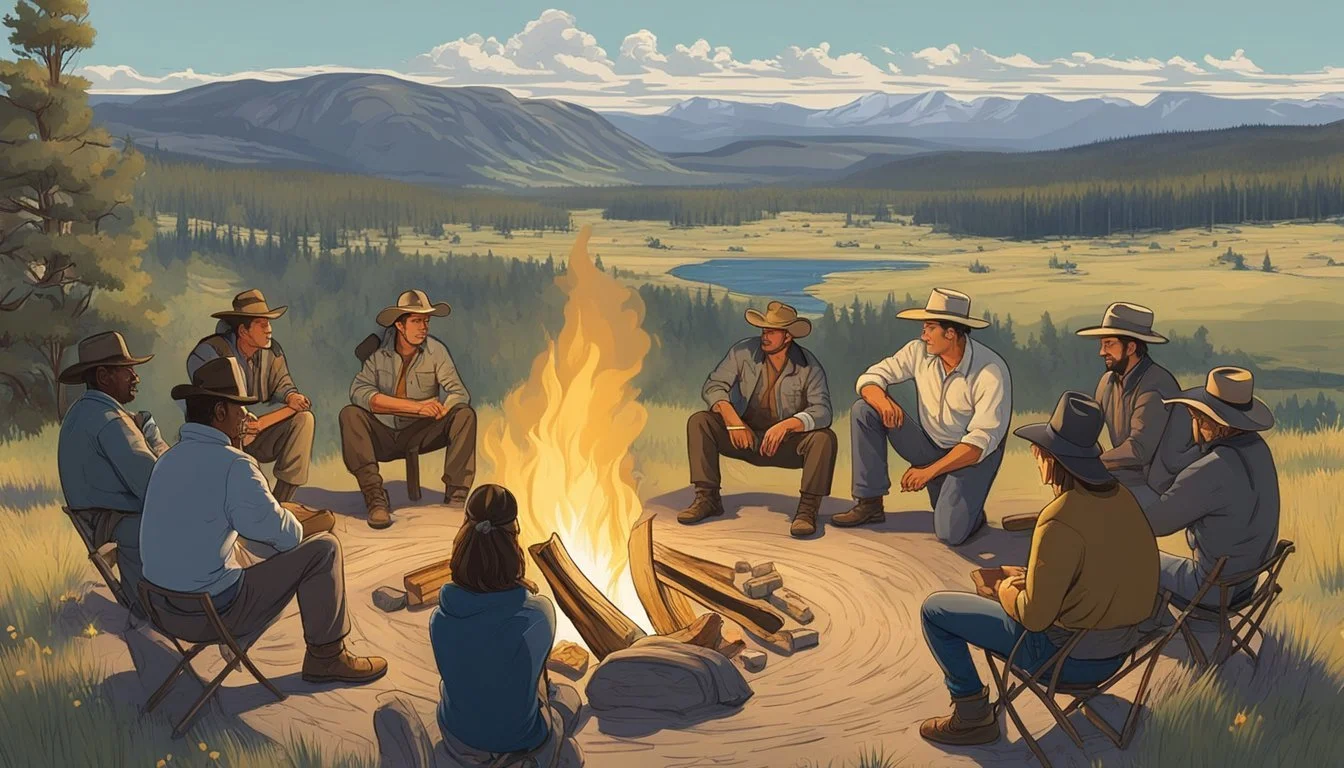Yellowstone Show Declared a Disappointment by Disillusioned Fans Everywhere
Yellowstone, the popular drama series created by Taylor Sheridan, has faced increasing criticism in recent years. Despite its initial success and high viewership, many viewers now consider Yellowstone to be overrated and disappointing. The show's decline in quality has been particularly noticeable in its later seasons.
Critics point to several issues with Yellowstone, including inconsistent writing, unrealistic plotlines, and questionable acting performances. The series, which stars Kevin Costner as ranch owner John Dutton, has been accused of relying too heavily on shock value and melodrama rather than compelling storytelling.
Some viewers have begun to perceive Yellowstone as a "superhero show for old people," with its aging cast of characters portrayed as unrealistically powerful and influential. This criticism extends to the show's spin-offs, which feature other veteran actors in similar roles. As a result, many fans who were once captivated by Yellowstone's premise have grown disillusioned with its direction and execution.
Overview of Yellowstone Series
Yellowstone is a popular American drama series set against the backdrop of Montana's rugged landscape. The show follows the conflicts and power struggles surrounding the Dutton family's vast ranch.
Premise and Setting
Yellowstone centers on the Dutton family, led by patriarch John Dutton, who controls the largest contiguous ranch in the United States. The series is set in Montana, showcasing the state's breathtaking scenery and harsh wilderness. The Duttons face constant threats to their land from developers, Native American reservations, and the nearby Yellowstone National Park.
The ranch serves as both a sanctuary and a source of conflict for the family. Throughout the series, the Duttons employ various tactics, both legal and illegal, to maintain their grip on their ancestral lands.
Series Creator and Vision
Taylor Sheridan, known for his work on films like "Sicario" and "Hell or High Water," created Yellowstone. Sheridan's vision for the show blends classic Western themes with modern political and economic issues.
The series explores topics such as land rights, family loyalty, and the changing face of the American West. Sheridan's writing style emphasizes complex characters and morally ambiguous situations.
Yellowstone's success led to the creation of spin-off series, including "1883," which delves into the Dutton family's origins. This expansion demonstrates Sheridan's commitment to building a broader narrative universe around the core themes of Yellowstone.
Critical Reception
Yellowstone's critical reception has fluctuated since its debut. Initial reviews were mixed, with later seasons receiving more positive feedback from critics and audiences alike.
Analysis of Negative Feedback
Early seasons of Yellowstone faced criticism for pacing issues and underdeveloped characters. Critics pointed out that the show's plot sometimes felt disjointed, with storylines that didn't always connect smoothly. Some reviewers found the dialogue heavy-handed and the character motivations unclear.
The show's portrayal of Native American characters also drew criticism for relying on stereotypes. Critics argued that these representations lacked depth and nuance.
Despite these critiques, Yellowstone maintained a strong viewership. This disconnect between critical opinion and audience reception became a topic of discussion among TV analysts.
Comparison with Other Works by Taylor Sheridan
Taylor Sheridan's other works, such as Sicario and Wind River, received more consistent critical acclaim than Yellowstone's early seasons. These films were praised for their tight narratives and complex characters.
Sicario earned accolades for its tense atmosphere and moral ambiguity. Wind River was lauded for its exploration of Native American issues and strong performances.
In contrast, Yellowstone initially struggled to achieve the same level of critical success. However, as the series progressed, reviews improved. Later seasons were noted for stronger plot development and character arcs, aligning more closely with the quality expected from Sheridan's work.
Character Analysis
Yellowstone's characters exhibit flaws and inconsistencies that detract from the show's quality. Their development often feels forced or illogical, undermining the narrative's credibility.
John Dutton's Character Complexity
John Dutton, portrayed by Kevin Costner, lacks the depth expected of a central character. His motivations often seem one-dimensional, focused solely on preserving his land at any cost.
This narrow perspective limits his growth and makes his actions predictable. John's relationships with his children are fraught with manipulation, yet the show rarely explores the psychological toll this takes.
His leadership style oscillates between ruthless and paternal, creating an inconsistent character arc. This inconsistency makes it difficult for viewers to connect with or understand John's true nature.
Beth Dutton's Polarizing Role
Beth Dutton, played by Kelly Reilly, is a divisive character whose extreme behavior often overshadows her potential for nuanced development. Her constant aggression and vulgar language become repetitive and tiresome.
While Beth's backstory provides some context for her actions, it doesn't justify the extent of her cruelty. Her relationship with Rip feels forced at times, lacking the organic growth necessary for a compelling romance.
Beth's business acumen is frequently overshadowed by her personal vendettas, reducing her to a one-note character. Her lack of growth or self-reflection throughout the series is a significant drawback.
Jamie Dutton's Arc and Decisions
Jamie Dutton, portrayed by Wes Bentley, suffers from inconsistent writing and questionable character choices. His constant struggle for acceptance within the Dutton family becomes repetitive and fails to evolve.
Jamie's decision-making often seems illogical, driven more by plot requirements than authentic character development. His relationship with his biological father introduces potential for growth, but this storyline is poorly executed.
The show's treatment of Jamie as a perpetual outsider limits his potential for meaningful character development. His legal expertise is frequently underutilized, reducing him to a pawn in family conflicts.
Kayce Dutton's Journey
Kayce Dutton, played by Luke Grimes, shows promise but ultimately falls short of meaningful character development. His military background is often used as a plot device rather than a complex part of his identity.
Kayce's relationship with Monica lacks depth, relying on external conflicts rather than exploring their personal growth as a couple. His role as a father is underdeveloped, missing opportunities to add layers to his character.
While Kayce's loyalty to his family is a central theme, it often leads to predictable storylines that fail to challenge or evolve his character. His spiritual journey feels disconnected from the main plot, lacking integration with his other character traits.
Performance and Acting
The acting in Yellowstone has received mixed reviews from critics and viewers. While some performances stand out, others have been criticized as unconvincing or over-the-top.
Main Cast's Performance
Kevin Costner leads the ensemble as John Dutton, delivering a solid portrayal of the gruff patriarch. His gravitas and screen presence lend credibility to the character. Kelly Reilly's Beth Dutton is a divisive figure, with some praising her intensity and others finding her abrasive.
Luke Grimes and Wes Bentley, as Kayce and Jamie Dutton respectively, offer layered performances that showcase their characters' internal conflicts. Cole Hauser's Rip Wheeler has become a fan favorite, embodying the loyal ranch foreman with a mix of toughness and vulnerability.
Supporting Cast Contributions
The supporting cast adds depth to the Yellowstone world. Gil Birmingham's Thomas Rainwater provides a nuanced counterpoint to the Duttons. Kelsey Asbille's Monica brings emotional weight to her scenes.
Jefferson White's Jimmy has shown growth throughout the series, evolving from comic relief to a more complex character. Forrie J. Smith's Lloyd and Ryan Bingham's Walker contribute authenticity to the ranch life depictions.
Dawn Olivieri's Sarah Atwood, a newer addition, has injected fresh energy into the show's dynamics. Her calculated performance adds intrigue to the political storylines.
Plot Evolution and Pacing
Yellowstone's narrative trajectory has faced criticism for inconsistent pacing and convoluted storylines. The show's plot development has struggled to maintain viewer engagement as it progressed through multiple seasons.
Pacing Issues in Later Seasons
Season 5 of Yellowstone encountered significant pacing problems. Episodes often dragged, filled with lengthy dialogue scenes that failed to advance the plot meaningfully. Key storylines, like the conflict between the Duttons and Market Equities, moved at a glacial pace.
The show's tendency to introduce new characters and subplots further slowed the narrative momentum. This approach left many viewers frustrated, as established storylines were left unresolved for extended periods.
Yellowstone's midseason finale exemplified these issues. It lacked the dramatic tension and resolution many fans expected, leaving numerous plot threads dangling.
Plot Twists and Viewer Engagement
Yellowstone's reliance on shock-value plot twists has yielded mixed results. While some twists successfully captivated audiences, others felt contrived or unnecessary.
The show's penchant for tragedy, particularly in later seasons, became predictable. Character deaths and dramatic reversals of fortune lost their impact due to overuse.
Viewer engagement suffered as a result of these narrative choices. Many fans expressed disappointment with the direction of certain character arcs and the seemingly aimless progression of the overall story.
The show's attempts to maintain suspense often backfired, leading to a loss of coherence in the broader narrative. This issue became particularly apparent in the lead-up to season finales, where plot threads were hastily tied together.
Cinematography and Aesthetics
Yellowstone's cinematography captures Montana's landscapes while maintaining a raw, realistic aesthetic. The show's visual style blends practical filming with creative storytelling techniques.
Utilization of Montana's Landscapes
Montana's natural beauty serves as a stunning backdrop for Yellowstone. The show's cinematographers skillfully frame shots to showcase the state's diverse terrain. Rolling prairies, rugged mountains, and pristine rivers feature prominently throughout the series.
Wide-angle shots emphasize the vastness of the Montana landscape. This technique reinforces the characters' connection to the land and their struggles to maintain control over it.
Close-ups of natural elements like grass, rocks, and water add texture and depth to scenes. These details help create a more immersive viewing experience.
Artistic Direction and Visual Appeal
Yellowstone's cinematography aims for a gritty, authentic look. The show often employs natural lighting to enhance realism and mood.
Color grading techniques accentuate the warm tones of sunsets and the cool hues of mountain shadows. This approach adds visual interest while maintaining a sense of place.
Camera movement is typically restrained, allowing the landscape to speak for itself. Steady shots and slow pans give viewers time to absorb the scenery.
The show occasionally uses drone footage for sweeping aerial views. These shots provide context and reinforce the scale of the Dutton ranch.
Cultural and Realistic Representation
Yellowstone's portrayal of Western life and Native American culture has drawn both praise and criticism. The show attempts to depict ranching traditions and Indigenous experiences, but falls short in key areas.
Representation of Ranching and Cowboy Life
Yellowstone romanticizes cowboy culture, often at the expense of accuracy. The bunkhouse scenes depict camaraderie among ranch hands, but gloss over the harsh realities of the job. Cowboys are shown participating in dramatic rodeo events more frequently than performing daily chores.
The show exaggerates the power and influence of large ranch owners. While conflicts over land use occur in the real West, Yellowstone amplifies these tensions to unrealistic levels. The Dutton family's grip on local politics and law enforcement strains credibility.
Authentic details like cattle branding and horse training are included, but take a backseat to soap opera-style drama. This creates an idealized version of ranch life that doesn't reflect modern realities.
Indigenous Peoples' Portrayal
Yellowstone makes efforts to include Native American characters, but their depiction is uneven. Thomas Rainwater, as a tribal chairman, adds an Indigenous perspective to land disputes. However, his character often serves more as a plot device than a fully realized individual.
The show consults with tribal advisors on some cultural elements. Certain ceremonies and rituals are portrayed with respect. Yet these moments can feel tokenistic, inserted for color rather than genuine exploration of Indigenous issues.
Native characters are frequently defined by their conflicts with white ranchers. This reinforces outdated stereotypes instead of presenting a nuanced view of contemporary Native American life. More screen time is devoted to casino negotiations than to the diverse experiences of reservation residents.
The Dutton Family Dynamics
The Dutton family is characterized by complex relationships, intense loyalty, and frequent conflict. Their interactions are shaped by power struggles, secrets, and a fierce desire to protect their legacy.
Family Loyalty and Conflict
John Dutton rules the family with an iron fist, demanding unwavering loyalty from his children. Beth, his daughter, embodies this loyalty fiercely, often going to extreme lengths to protect the family's interests. Jamie, though adopted, grapples with his place in the family hierarchy.
Conflict arises from competing visions for the ranch's future and personal ambitions. Kayce's attempts to balance family obligations with his own path create tension. The Duttons often resort to manipulation and violence to resolve disputes, both within and outside the family.
Their united front against external threats contrasts sharply with internal power struggles. This duality showcases the family's complex dynamics and the toll their lifestyle takes on relationships.
Interpersonal Relationships within the Family
Beth and Jamie's relationship is particularly fraught, marked by hostility and mistrust. Beth's anger stems from past betrayals, while Jamie struggles with feelings of inadequacy and resentment. Their interactions often devolve into bitter confrontations.
John's relationships with his children are strained by his high expectations and emotional distance. He shows favoritism towards Beth, which further complicates family dynamics. Kayce's relationship with his father is a mix of respect, fear, and occasional defiance.
The Duttons' interpersonal bonds are tested by secrets, lies, and conflicting loyalties. Despite deep-seated issues, moments of genuine affection and support emerge in times of crisis, highlighting the complexity of their family ties.
Yellowstone's Impact and Legacy
Despite its flaws, Yellowstone has left an undeniable mark on television and popular culture. The show's success has sparked renewed interest in Western-themed entertainment and rural American issues.
Influence on Modern Westerns
Yellowstone's popularity has revitalized the Western genre for modern audiences. The show's gritty portrayal of ranch life and family drama has inspired other productions to explore similar themes. Its success on cable and streaming platforms like Paramount+ has demonstrated the ongoing appeal of Western narratives.
The series has also influenced fashion trends, with viewers embracing cowboy-inspired clothing and accessories. This resurgence of Western style extends beyond the show's fanbase, impacting broader fashion markets.
Potential for Future Spin-offs
Yellowstone's success has already led to spin-off series, with more potentially in development. The prequel series 1883 received critical acclaim, proving the franchise's ability to expand beyond its original premise. This success suggests a promising future for additional Yellowstone-related content.
Spin-offs allow the exploration of different time periods and characters within the Yellowstone universe. These expansions could delve deeper into the Dutton family history or focus on supporting characters, providing fresh perspectives on the show's themes.
The potential for spin-offs also presents opportunities to address criticisms of the original series, potentially improving upon its shortcomings while maintaining the elements that attracted viewers.
Viewer Base and Fandom
Yellowstone's audience has been deeply invested in the show's characters and storylines since its debut. Fans have formed passionate online communities to discuss plot developments and speculate about future events.
Engagement and Fan Theories
Yellowstone's viewer base has been highly engaged, particularly on social media platforms and fan forums. Reddit has become a hub for fans to share their thoughts and theories about the show's direction. Many viewers have crafted intricate fan theories, especially regarding the Dutton family's fate and potential plot twists.
The anticipation for Season 5 led to increased speculation and excitement among fans. Some theories focused on possible alliances and betrayals within the Dutton clan, while others predicted major character deaths or unexpected revelations about the ranch's history.
Fandom's Response to Show's Direction
As Yellowstone progressed, the fandom's reaction became increasingly divided. Many long-time fans expressed disappointment with the show's recent storylines, particularly in Season 5. Some viewers felt the writing quality had declined, leading to a loss of the initial excitement that drew them to the series.
The Season 5 midseason premiere sparked heated debates among fans. Some viewers described the episode as "historically not good" and "just embarrassing." This sentiment was echoed across fan forums, with many expressing frustration over the two-year wait for what they perceived as subpar content.
Despite the criticism, a portion of the fanbase remains loyal to Yellowstone. These viewers continue to defend the show and eagerly anticipate future episodes, hoping for a return to form in the series finale.
Casting and Character Roles
Yellowstone's casting decisions and character roles have drawn mixed reactions from viewers. The show's approach to portraying key figures and their development has been a point of contention for some critics and fans.
Strategic Casting Choices
Kevin Costner's selection as John Dutton anchors the series with star power. His presence lends gravitas to the patriarch role, though some argue it overshadows other performances. Kelly Reilly's portrayal of Beth Dutton has garnered praise for its intensity, while also facing criticism for potentially one-dimensional characterization.
The casting of Native American characters has sparked debate. While the show includes Indigenous actors, questions have been raised about the depth and authenticity of their roles. This reflects broader discussions on representation in television.
Characters' Evolution Through the Series
Beth Dutton's character arc shows minimal growth, maintaining her aggressive persona throughout. This lack of evolution frustrates some viewers seeking more nuanced character development.
Jamie Dutton's journey from loyal son to conflicted lawyer presents a more complex trajectory. His shifting allegiances add intrigue but may feel inconsistent to some.
Kayce Dutton and Rip Wheeler serve as contrasting figures in the Dutton orbit. Kayce's struggle between family loyalty and personal values offers some depth. Rip's unwavering dedication to the ranch provides stability but limits his character's range.
Secondary characters often remain static, serving plot functions rather than experiencing significant growth. This approach can make the show feel formulaic over time.
Controversies and Criticisms
"Yellowstone" has faced various criticisms and controversies since its debut. The show's portrayal of certain themes and characters has sparked debate among viewers and critics alike.
Addressing the Show's Criticisms
Some viewers find "Yellowstone" excessively melodramatic. The series has been accused of relying too heavily on sensationalism and unrealistic plot twists to maintain audience interest.
Critics argue that the show's depiction of Native Americans is problematic. They claim it perpetuates stereotypes and fails to provide nuanced portrayals of indigenous characters.
The age of the lead actors has also drawn criticism. Kevin Costner, at 68, portrays a character some viewers find unrealistically "badass" for his age.
Controversial Elements in Storylines
Violence is a contentious aspect of "Yellowstone." Some viewers feel the show glorifies brutality and presents an overly aggressive vision of the American West.
The series' treatment of political themes has stirred debate. Critics argue it oversimplifies complex issues related to land ownership and tribal rights.
"Yellowstone" has been accused of promoting a romanticized view of ranching culture. This portrayal may gloss over real-world environmental and economic challenges faced by modern ranchers.
The show's depiction of villains has been both praised and criticized. Some find the antagonists compelling, while others argue they lack depth and rely too heavily on stereotypes.
Distribution and Accessibility
Yellowstone's distribution strategy spans traditional cable and streaming platforms. The show's accessibility varies across different regions and services, impacting its reach and viewership.
Paramount Network and Streaming Options
Paramount Network remains Yellowstone's primary home for first-run episodes. Cable subscribers can watch new installments as they air on the network.
Streaming rights for the series are split between platforms. Paramount+ offers on-demand access to select seasons, but not the most recent episodes. This fragmented availability can frustrate viewers seeking to stream the entire series in one place.
Some streaming services provide Yellowstone through add-on packages or live TV options. These alternatives allow cord-cutters to keep up with new episodes, albeit at an additional cost.
International Availability and Restrictions
Yellowstone's international distribution is more limited compared to its U.S. presence. The show's availability varies significantly by country and region.
In some markets, local broadcasters have secured rights to air Yellowstone on traditional TV channels. Streaming options differ across borders, with some countries offering the series on popular platforms like Amazon Prime Video or local streaming services.
Licensing agreements and regional restrictions can delay the release of new seasons in certain territories. This lag time may lead to spoilers for international fans and potentially drive some viewers to seek unofficial means of access.



